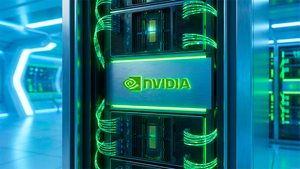
The technological landscape is on the cusp of a profound transformation as quantum computing rapidly converges with traditional semiconductor technology. This synergy is not merely an incremental advancement but a fundamental paradigm shift, poised to democratize access to quantum hardware and integrate its revolutionary capabilities into the broader technological infrastructure. The immediate significance lies in the potential to unlock computational power far beyond classical systems, with direct implications for fields like artificial intelligence, materials science, and cryptography. This convergence promises to bring fault-tolerant quantum computers closer to reality by leveraging decades of expertise in silicon-based fabrication, addressing critical challenges related to qubit fidelity, coherence times, and massive scalability.
At the heart of this convergence is the innovative adaptation of established semiconductor manufacturing processes for quantum advancements. Companies are actively leveraging existing infrastructure, expertise, and advanced nanofabrication techniques—like lithography and thin-film deposition—to create quantum devices. Silicon, the cornerstone of classical semiconductors, is emerging as a promising platform for qubits due to its stability and compatibility with current manufacturing paradigms. This includes the development of CMOS-compatible fabrication for silicon-based qubits and the integration of cryogenic control electronics directly onto quantum chips, effectively tackling the "wiring bottleneck" and paving the way for scalable, integrated quantum-classical hybrid systems.
The Silicon Qubit Revolution: A New Era of Quantum Engineering
The convergence of quantum computing and semiconductor technology marks a pivotal shift, moving beyond theoretical concepts toward practical, scalable quantum systems. This synergy leverages decades of expertise in semiconductor manufacturing to directly address fundamental challenges in quantum computing, such as qubit fidelity, coherence times, and large-scale integration. At the forefront of this revolution are advancements in silicon-based qubits, superconducting circuits, and quantum dot technologies, each offering unique pathways to a quantum future.
Silicon-based qubits, particularly spin qubits, are gaining significant traction due to their inherent compatibility with existing Complementary Metal-Oxide-Semiconductor (CMOS) manufacturing infrastructure. Researchers have achieved remarkable milestones, with single-qubit gate fidelities exceeding 99.99% and two-qubit gate fidelities surpassing 99% in silicon spin qubits – critical benchmarks for fault-tolerant quantum computation. The development of ultra-pure silicon-28, reducing disruptive isotope content to an unprecedented 2.3 parts per million, has created a more noise-free environment, leading to longer coherence times. Furthermore, innovations like Intel's (NASDAQ: INTC) "Horse Ridge" cryogenic control chips integrate control electronics directly into the cryogenic environment, drastically reducing wiring complexity and enabling the control of thousands of qubits from compact systems. This approach fundamentally differs from earlier quantum systems that struggled with coherence and accuracy, offering a clear path to mass production and seamless integration with classical control electronics on the same chip.
Superconducting quantum computing (SQC) also benefits from semiconductor-like fabrication, utilizing superconducting electronic circuits and Josephson junctions to implement quantum processors. Companies like IBM (NYSE: IBM) and Google (NASDAQ: GOOGL) have demonstrated significant progress, with IBM releasing the "Condor" processor featuring 1121 qubits and Google's "Willow" chip showcasing a 105-qubit array with impressive single-qubit gate fidelities of 99.97%. While superconducting qubits require extremely low temperatures, their compatibility with microfabrication allows for design flexibility and rapid gate times. This contrasts with slower modalities like trapped ions, offering a distinct advantage in computational speed.
Quantum dot technologies, which confine single electrons in transistor-like semiconductor structures to use their spin as qubits, are also highly promising for scalability. Advancements focus on precise electron spin confinement using electrostatic gates and the development of silicon/silicon-germanium (Si/SiGe) heterostructures to reduce performance-degrading defects. These quantum dot qubits, with their small footprints and high coherence times, are directly analogous to classical transistors, enabling the leveraging of vast silicon microelectronics expertise. The AI research community and industry experts have reacted with overwhelming optimism, viewing silicon spin qubits as a "natural match" for the semiconductor industry and a significant milestone. They foresee transformative potential for AI, comparing this convergence to the CPU-to-GPU shift that fueled the deep learning revolution, though they also acknowledge the persistent challenges in achieving truly fault-tolerant, large-scale quantum computers.
Reshaping the Tech Landscape: Giants, Startups, and the Quantum Edge
The convergence of quantum computing and semiconductor technology is poised to fundamentally reshape the tech industry, impacting AI companies, tech giants, and startups alike. This synergy is expected to unlock unprecedented computational power, accelerate AI development, and create new competitive dynamics and strategic advantages across the board.
AI companies stand to gain transformative capabilities, as quantum computers can accelerate complex AI algorithms, leading to more sophisticated machine learning models, enhanced data processing, and optimized large-scale logistics. This increased computational power will enable the training of vastly more complex AI models and the ability to tackle optimization problems currently intractable for even the most powerful supercomputers, drawing parallels to the CPU-to-GPU shift that fueled the deep learning revolution. Quantum principles are also inspiring novel AI architectures, such as Quantum Neural Networks (QNNs), which promise more robust and expressive models by leveraging superposition and entanglement, critical for handling the ever-growing size and sophistication of AI models.
Tech giants are strategically positioning themselves at the forefront of this convergence, heavily investing in full-stack quantum systems and leveraging their existing semiconductor expertise. IBM (NYSE: IBM) continues its aggressive roadmap with superconducting qubits, integrating processors like Heron and Condor into its Quantum System One and System Two architectures, complemented by its Qiskit SDK and cloud access. Google (NASDAQ: GOOGL), through its Quantum AI division, is deeply invested in superconducting qubits, focusing on both hardware and cutting-edge quantum software. Intel (NASDAQ: INTC) is a key proponent of silicon spin qubits, capitalizing on its profound expertise in chip manufacturing. Microsoft (NASDAQ: MSFT) is pursuing a cloud-based quantum service through Azure, with a unique focus on topological qubits, while NVIDIA (NASDAQ: NVDA) explores how its hardware can interface with and accelerate quantum workloads. These giants are not merely building quantum computers; they are establishing comprehensive quantum ecosystems that will redefine market leadership.
For startups, this convergence presents both significant opportunities and challenges. Agile quantum startups are fiercely competing with tech giants by specializing in niche areas like specific qubit architectures, software layers, or quantum algorithms for applications in materials science, drug discovery, financial modeling, or cybersecurity. Companies like IonQ (NYSE: IONQ) and Rigetti Computing (NASDAQ: RGTI) are gaining attention for their advancements in quantum hardware, with IonQ's Electronic Qubit Control (EQC) technology promising easier scaling and lower costs by integrating qubit-control components onto semiconductor chips. However, startups face high barriers to entry due to the capital-intensive nature of quantum hardware development, the need for specialized environments, and a shortage of quantum computing expertise, forcing them to compete for skilled personnel and private investment against well-funded tech giants. The urgent demand for quantum-resistant cryptographic solutions, for instance, creates a multi-billion-dollar market for specialized cybersecurity firms.
A New Era of Innovation: Societal, Economic, and Geopolitical Ramifications
The convergence of quantum computing and semiconductor technology represents a profound shift in the technological landscape, poised to redefine computational capabilities and catalyze a new era of innovation across numerous sectors. This synergy is not merely an incremental advancement but a foundational change with wide-ranging societal, economic, and geopolitical implications, fitting seamlessly into the broader trends of advanced AI development and the pursuit of computational supremacy.
Semiconductors are proving crucial for the advancement of quantum computing, acting as the bedrock for developing quantum hardware, particularly qubits. By leveraging decades of expertise in silicon-based fabrication, researchers are overcoming significant challenges in quantum computing, such as achieving higher qubit fidelity, extending coherence times, and developing pathways for massive scalability. This integration promises to democratize access to quantum hardware, making quantum capabilities an integral part of our technological infrastructure rather than being confined to specialized laboratories. Conversely, quantum computing offers unprecedented computational power by leveraging superposition and entanglement, enabling the efficient solving of complex problems previously intractable for classical computers, particularly those involving optimization and the simulation of quantum systems.
This synergy, often termed Quantum AI, is seen as one of the most promising frontiers in computational science. Quantum computing is expected to act as the "engine" for future AI, unlocking unprecedented computational power that will enable the training of vastly more complex AI models and accelerate data analysis. This could lead to a paradigm shift in computational power and efficiency, potentially catalyzing the development of Artificial General Intelligence (AGI). Conversely, AI is playing a crucial role in accelerating quantum development, with machine learning employed to optimize quantum circuits, mitigate errors in noisy intermediate-scale quantum (NISQ) devices, and enhance quantum error correction. This creates a "virtuous cycle of innovation" where advancements in one field propel the other, with hybrid quantum-classical architectures emerging as a key trend.
The potential impacts are transformative across society and the global economy. In healthcare, quantum-enhanced AI could accelerate drug discovery, enable more accurate molecular simulations, and lead to personalized therapies. For climate change, it could enhance climate modeling and optimize renewable energy grids. Economically, the quantum sector is projected to have a significant impact, with estimates suggesting a cumulative value creation of over $1 trillion for end-users by 2035 and substantial job creation. However, significant concerns loom. The "quantum supremacy" race has become a critical national security issue, particularly due to the potential of quantum computers to render current encryption methods obsolete, leading to a scenario dubbed "Q-day." This poses an existential threat to global data security, amplifying cyber threats and exacerbating geopolitical tensions between nations vying for technological dominance. Experts consider this a fundamental shift, akin to the transition from CPUs to GPUs that powered the deep learning revolution, representing a monumental leap forward in computational capability.
The Road Ahead: Hybrid Systems, Applications, and Lingering Challenges
The future of quantum-semiconductor hybrid systems is characterized by ambitious developments aimed at leveraging the strengths of both quantum mechanics and classical semiconductor technology to unlock unprecedented computational power. These systems are expected to evolve significantly in both the near and long term, promising transformative applications across numerous industries while facing substantial challenges.
In the near term (the next 5-10 years), the focus will be on refining existing technologies and establishing robust foundational elements. Continued efforts will concentrate on improving silicon spin qubit technologies, leveraging their compatibility with CMOS manufacturing processes to achieve higher fidelities and longer coherence times. The widespread adoption and improvement of hybrid quantum-classical architectures will be critical, allowing quantum processors to function as accelerators for specific, computationally intensive tasks in conjunction with classical semiconductor systems. The integration of advanced cryogenic control electronics, such as those pioneered by Intel (NASDAQ: INTC), will become standard for scalable control of hundreds of qubits. Furthermore, advancements in quantum error mitigation techniques and the nascent development of logical qubits are anticipated, with experts predicting the first logical qubits surpassing physical qubits in error rates. Early physical silicon quantum chips with hundreds of qubits are expected to become increasingly accessible through cloud services, with the first instances of "quantum advantage" potentially emerging by late 2026.
Looking further into the future (beyond 10 years), the vision becomes even more transformative. The long-term goal is to achieve fully fault-tolerant, large-scale quantum computers capable of addressing problems currently beyond the reach of any classical machine. Roadmaps from industry leaders like IBM (NYSE: IBM) anticipate reaching hundreds of logical qubits by the end of the decade, with a target of 2,000 logical qubits by 2033. Microsoft (NASDAQ: MSFT) is pursuing a million-qubit system based on topological qubits, which inherently offer stability against environmental noise. These massive qubit counts and connectivity will pave the way for a profound revolution across numerous sectors, driven by quantum-enhanced AI, where quantum computers augment rather than entirely replace classical systems, serving as powerful co-processors accessible through cloud services.
These hybrid systems are poised to unlock a vast array of applications. In artificial intelligence and machine learning, they promise to accelerate complex algorithms, leading to more sophisticated models and enhanced data processing. Drug discovery, materials science, financial modeling, and logistics will see revolutionary advancements through unparalleled optimization and simulation capabilities. Cybersecurity will be fundamentally reshaped, not only by the threat quantum computers pose to current encryption but also by their necessity in developing and implementing quantum-safe cryptography and secure communications. Manufacturing and design cycles will be transformed, with quantum computing impacting prototyping and materials engineering.
Despite this promising outlook, several significant challenges must be overcome. Continuously improving qubit fidelity and extending coherence times are fundamental, especially as systems scale. Achieving massive scalability while maintaining the small size of semiconductor qubits, developing robust quantum error correction mechanisms, and seamlessly integrating quantum processing units (QPUs) with classical CPUs and GPUs present major engineering hurdles. Challenges in materials science, access to commercial-grade foundries, efficient thermal management, standardization, and a persistent global talent shortage also need urgent attention. Experts predict a dynamic future, with AI and semiconductor innovation sharing a symbiotic relationship, and the "quantum advantage" tipping point generally believed to be 3 to 5 years away. The future is undeniably hybrid, with quantum computing units further integrated alongside classical processors, leading to a revolutionary impact on human life and science.
The Quantum Horizon: A New Epoch of Computational Power
The convergence of quantum computing and semiconductor technology marks a pivotal moment in technological advancement, promising to redefine the future of computation and artificial intelligence. This synergy represents a mutually reinforcing relationship: semiconductors are crucial for building scalable and stable quantum computers, while quantum computing offers unprecedented tools to optimize semiconductor design, materials discovery, and manufacturing.
Key takeaways highlight that this convergence is actively engineering the quantum future. Semiconductors serve as the foundational material for creating qubits, with advancements in silicon-based fabrication crucial for improving qubit fidelity, coherence, and integration. Companies like Intel (NASDAQ: INTC) are developing cryogenic control chips to integrate quantum processors with conventional hardware, simplifying operations. This approach is overcoming classical limits, as quantum computers can solve problems intractable for even the most powerful classical supercomputers, potentially revitalizing the spirit of Moore's Law. The future envisions hybrid quantum-classical systems, where quantum computers augment classical systems as powerful co-processors accessible through cloud services, driving new efficiencies. Crucially, AI itself plays a virtuous role, optimizing quantum systems and semiconductor design at an atomic level.
In the annals of AI history, this convergence represents a profound paradigm shift, akin to the transition from CPUs to GPUs that fueled the deep learning revolution. It promises unprecedented computational power for AI, enabling the training of vastly more complex models and accelerating data analysis, potentially catalyzing the development of Artificial General Intelligence (AGI). This development is poised to usher in an era of entirely new forms of AI, moving beyond the incremental gains of classical hardware.
The long-term impact is expected to be a profound revolution across numerous sectors. Quantum-enhanced AI will redefine what is computationally possible in drug discovery, materials science, financial modeling, logistics, and cybersecurity. However, this also brings significant challenges, particularly the existential threat quantum computers pose to current encryption methods. This drives the urgent development and embedding of post-quantum cryptography (PQC) solutions into semiconductor hardware to protect future AI operations. Economically, this synergy is a "mutually reinforcing power couple" expected to accelerate, with global semiconductor revenues potentially surpassing $1 trillion by 2030, driven by AI chips. The immense power of quantum AI also necessitates careful consideration of its ethical and societal implications, including potential for bias and challenges in explainability.
In the coming weeks and months, several critical milestones are anticipated. Watch for further progress towards "quantum advantage," with experts predicting the first instances within 3-5 years, and more widespread practical applications within 5 to 10 years. Continued innovation in qubit fidelity and scaling, particularly in silicon-based systems, will be paramount. The urgent deployment of Post-Quantum Cryptography (PQC) solutions and the accelerated adoption of quantum-resistant algorithms will be crucial to mitigate "harvest now, decrypt later" threats. Expect to see more demonstrations and commercial applications of hybrid quantum-classical systems, alongside intensifying geopolitical competition and strategic investments in quantum technology. The quantum computing market is projected for significant growth, with commercial systems capable of accurate calculations with 200 to 1,000 reliable logical qubits considered a technical inflection point. The journey is complex, but the destination promises an epoch of unprecedented computational power and scientific discovery.
This content is intended for informational purposes only and represents analysis of current AI developments.
TokenRing AI delivers enterprise-grade solutions for multi-agent AI workflow orchestration, AI-powered development tools, and seamless remote collaboration platforms.
For more information, visit https://www.tokenring.ai/.




